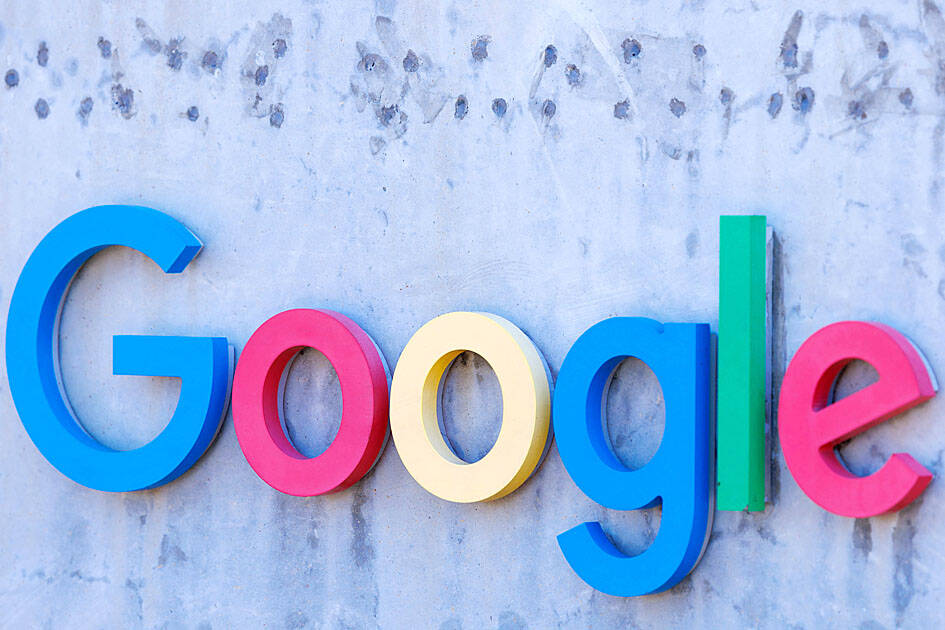Google on Monday signed a deal to get electricity from small nuclear reactors to help power artificial intelligence (AI).
The agreement to buy energy from reactors built by Kairos Power LLC came just weeks after word that Three Mile Island near Harrisburg, Pennsylvania — the site of the US’ worst nuclear accident — would restart operations to provide energy to Microsoft Corp.
“We believe that nuclear energy has a critical role to play in supporting our clean growth and helping to deliver on the progress of AI,” Google senior director of energy and climate Michael Terrell said during a briefing. “The grid needs these kinds of clean, reliable sources of energy that can support the build out of these technologies.”

Photo: Reuters
No financial details were disclosed.
Tech giants such as Microsoft, Amazon.com Inc and Google are rapidly expanding their data center capabilities to meet AI’s computing needs while also scouring the globe for sources of electricity.
The first of a series of small modular reactors (SMRs) developed by Kairos as a result of its deal with Google is projected to be online by the end of this decade, the companies have said.
Additional small reactors are expected to go online through 2035, generating a combined total of 500 megawatts.
SMRs are more compact and potentially easier to deploy — with big investments by Microsoft founder Bill Gates in the sector.
However, the technology is still in its infancy and lacks regulatory approval, leading companies to seek out existing nuclear power options.
“We view this as a really significant partnership,” Kairos cofounder and chief executive officer Mike Laufer said in the briefing.
The agreement allows SMR technology “to mature and learn along the way,” Laufer added.
The grid needs new, clean, electricity sources to support AI as its capabilities and uses accelerate, Terrell said, adding that nuclear power is part of a campaign by Google to have abundant carbon-free energy available around the clock.
“This is an incredibly promising bet,” Terrell said of the deal. “If we can get these projects to scale and then scale globally, it will deliver enormous benefits to communities and power grids around the world.”
Seen as a more consistent source of power than solar and wind, many tech companies are betting on nuclear energy’s rapid development to meet AI’s electricity demands.
However, nuclear energy has staunch opponents due to concerns about radioactive waste disposal, the potential for catastrophic accidents, and the high costs associated with plant construction and decommissioning.
The 1979 partial meltdown of Unit 2 at Three Mile Island caused panic in the US and brought the expansion of nuclear energy to a standstill.
The US Nuclear Regulatory Commission deemed it the “most serious accident in US commercial nuclear power plant operating history,” although it added that there were no detectable health effects on workers or the public from the small radioactive releases.

The US dollar was trading at NT$29.7 at 10am today on the Taipei Foreign Exchange, as the New Taiwan dollar gained NT$1.364 from the previous close last week. The NT dollar continued to rise today, after surging 3.07 percent on Friday. After opening at NT$30.91, the NT dollar gained more than NT$1 in just 15 minutes, briefly passing the NT$30 mark. Before the US Department of the Treasury's semi-annual currency report came out, expectations that the NT dollar would keep rising were already building. The NT dollar on Friday closed at NT$31.064, up by NT$0.953 — a 3.07 percent single-day gain. Today,

‘SHORT TERM’: The local currency would likely remain strong in the near term, driven by anticipated US trade pressure, capital inflows and expectations of a US Fed rate cut The US dollar is expected to fall below NT$30 in the near term, as traders anticipate increased pressure from Washington for Taiwan to allow the New Taiwan dollar to appreciate, Cathay United Bank (國泰世華銀行) chief economist Lin Chi-chao (林啟超) said. Following a sharp drop in the greenback against the NT dollar on Friday, Lin told the Central News Agency that the local currency is likely to remain strong in the short term, driven in part by market psychology surrounding anticipated US policy pressure. On Friday, the US dollar fell NT$0.953, or 3.07 percent, closing at NT$31.064 — its lowest level since Jan.

The New Taiwan dollar and Taiwanese stocks surged on signs that trade tensions between the world’s top two economies might start easing and as US tech earnings boosted the outlook of the nation’s semiconductor exports. The NT dollar strengthened as much as 3.8 percent versus the US dollar to 30.815, the biggest intraday gain since January 2011, closing at NT$31.064. The benchmark TAIEX jumped 2.73 percent to outperform the region’s equity gauges. Outlook for global trade improved after China said it is assessing possible trade talks with the US, providing a boost for the nation’s currency and shares. As the NT dollar

The Financial Supervisory Commission (FSC) yesterday met with some of the nation’s largest insurance companies as a skyrocketing New Taiwan dollar piles pressure on their hundreds of billions of dollars in US bond investments. The commission has asked some life insurance firms, among the biggest Asian holders of US debt, to discuss how the rapidly strengthening NT dollar has impacted their operations, people familiar with the matter said. The meeting took place as the NT dollar jumped as much as 5 percent yesterday, its biggest intraday gain in more than three decades. The local currency surged as exporters rushed to